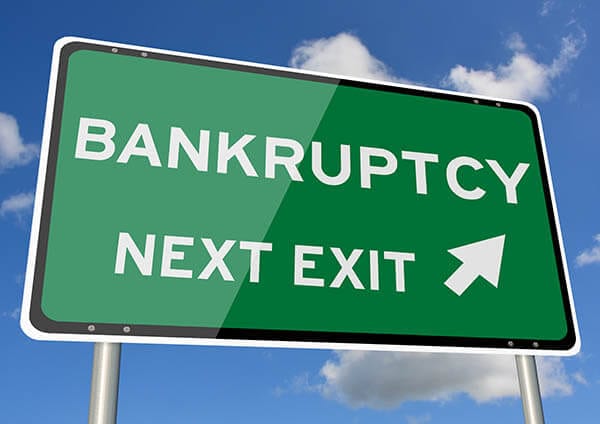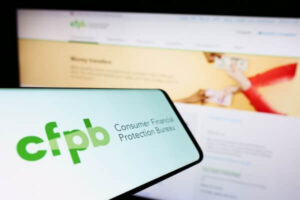In Era of Trump, Has Bankruptcy Stigma Lost Its Sting?
With Donald Trump being credited or blamed for virtually every imaginable good or ill (depending on the observer, of course), we in the world of personal finance and debt management can’t help but wonder:
What do regular folks make of the president’s assorted bankruptcies? Yes, they all were corporate filings, not personal. Still, does the fact he presided over four belly-up businesses and still rose to become the World’s Most Powerful Man ® and the Leader of the Free World ® take the sting out of filing for bankruptcy?
One source regarded our news peg suspiciously: “Is this,” asked Rob Drury, head of San Antonio, Texas-based Association of Christian Financial Advisors, “just another smear job of the president?
“Or are we trying to write a substantive article to serve the public with useful financial information?”
The latter, most assuredly. We leave politics to the politicians and pundits — who, it turns out, already have much to say about the subject. Yes, bankrupts and bankruptcy law figure to be a part of the 2020 presidential campaign … but not entirely because of the serial-filer in the White House. Democrats will get to him later.
Instead, Massachusetts Sen. Elizabeth Warren, whose claim to fame is as an early consumer-debt warrior, is using 2005’s bankruptcy reform act — Bankruptcy Abuse Prevention and Consumer Protection Act — as a cudgel for pounding Democratic (as this is written) frontrunner Joe Biden. As a senator representing corporate-haven Delaware, Biden was among the legislation’s key architects.
Arguably, despite record numbers of filings after the financial bubble burst, some of the hurdles erected by BAPCPA blocked debtors from bankruptcy’s fresh starts, exacerbating the Great Recession. Warren means to hang that failure on the deal-making Biden, whom she regards as too friendly toward corporations, creditors, and icky Republicans.
Warren, while we’re on the subject, would like to do away entirely with whatever remains of bankruptcy’s taboo status, Trump or no Trump. In her view, consumers seek bankruptcy not because of profligacy, but as a way out of dire conditions not of their making: lost jobs, prolonged illness or injury, divorce.
In 2019, stigma or not, consumer filings (Chapter 7 and Chapter 13 of the bankruptcy code) are on track to mark a nine-year low. The rate of personal bankruptcies is down by more than half from the 2010 record high (1.53 million).
Credit, at least in part, a surging economy: the stock market at historic highs, unemployment at historic lows, and, according to numbers tracked by the federal Bureau of Economic Analysis through June, wages ticking up at an impressive 4.1%, adjusted for inflation. All of that has enabled savings to grow at a reassuring 8.1% savings rate.
Credit, also, BAPCPA’s tougher rules for filing. Straight bankruptcy, discharging most debt while protecting some property — Chapter 7 — comes with a Catch-22: The process has become sufficiently complicated that, to make it worth their while, lawyers charge from $1,200 to $2,500. Add roughly $350 in court costs, all of which must be paid up front (otherwise they’d be discharged as part of the bankruptcy). That leaves the consumer who’s awash in debt needing to produce about $1,850, in advance, to get in front of a bankruptcy judge.
Chapter 13 bankruptcies, in which debtors work out reorganized repayment plans, are more complicated and costly still: Fees for bankruptcy attorneys run upwards of $3,200. The difference, however, is those costs can be rolled into the court-approved settlement in which everyone who has skin in the debtor’s game gets paid.
This is just as BPACPA’s framers intended: Fewer consumers are easily able to discharge their debts; more are coaxed toward reorganization and repayment.
Either way, maybe bankruptcy doesn’t deserve its enduring stigma. Without second-chance financial opportunities, says Tampa-based bankruptcy Judge Cathy P. McEwen, the spigot of entrepreneurial adventure would be squeezed to a trickle.
Bankruptcy, says the judge, provides people with “the right to try and fail.” If we hadn’t emerged from the dark, 19th century days of debtors’ prisons and corporal punishment for those who couldn’t pay their bills, she adds, “dreams would die, and entrepreneurs wouldn’t try.”
ACFA’s Drury agrees wholeheartedly. Avoid bankruptcy if it’s something you can reasonably do, he says. If not, “it is a good thing that personal bankruptcies … are a legitimate tool to be employed when necessary.”
Let’s be clear, as well: We’re not picking on the president — who, again, has never sought personal bankruptcy protection. The same cannot be said for celebrities including former heavyweight boxing champion Mike Tyson, rapper 50 Cent, baseball’s Kurt Schilling, actors Nicholas Cage and Kim Basinger.
Be cautious about throwing in with the cool kids. Personal bankruptcy sticks on a credit report for up to 10 years. And the entire case filing becomes a public record, easily discoverable in an internet search. If your financial crisis can be sorted by consulting with a nonprofit credit counseling service, you’re cheating yourself not to try that.
Even so, says Boston attorney Matthew J. Kidd, “Bankruptcy is a great way for individuals … to get a fresh start … from crippling debt obligations that would be impossible to cure.”
Taking the Warren view, Drury sympathizes with “reasonably honest and prudent people” who find themselves in an otherwise hopeless situation. For them, bankruptcy “should not be viewed as a character issue.”
If bankruptcy has grown sufficiently commonplace to have shed its stigma, Drury says, “that’s a good thing.”
On this, the current resident of the White House and the Massachusetts senator who hopes to take his place would agree.
Sources:
- Yglesias, M. (2019, May 6) The 20-year argument between Joe Biden and Elizabeth Warren over bankruptcy, explained. Retrieved from https://www.vox.com/policy-and-politics/2019/5/6/18518381/baccpa-bankruptcy-bill-2005-biden-warren
- O’Connell, B. (2019, June 19) What Is Chapter 7 Bankruptcy? Retrieved from https://www.thestreet.com/personal-finance/what-is-chapter-7-bankruptcy--14995704
- Editorial Board (2019, July 30) The 99% Get a Bigger Raise: New data show much faster growth in wages and incomes. Retrieved from https://www.wsj.com/articles/the-99-get-a-bigger-raise-11564529382
- NA (2019, July 30) Real Disposable Income Rises in June. Retrieved from https://www.bea.gov/news/blog/2019-07-30/real-disposable-income-rises-june-0
- BHPH Report Staff (2019, July 11) Bankruptcy filings remain steady through first half of 2019. Retrieved from https://www.autoremarketing.com/bhph/bankruptcy-filings-remain-steady-through-first-half-2019
- Keshner, A. (2019, January 8) Bankruptcy filings are at a 10-year low, but not for the reasons you might think. Retrieved from https://www.marketwatch.com/story/bankruptcy-filings-are-at-a-10-year-low-but-thats-not-necessarily-good-news-2019-01-07
- Foohey, P., Lawless, R., Porter, K., Thorne, D. (2017, March 2) “No Money Down” Bankruptcy. Retrieved from https://papers.ssrn.com/sol3/papers.cfm?abstract_id=2925899
- O’Neill, Cara (ND) Average Attorney Fees in Chapter 7 Bankruptcy. Retrieved from https://www.nolo.com/legal-encyclopedia/average-attorney-fees-chapter-7-bankruptcy.html.


















